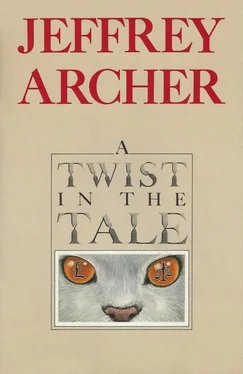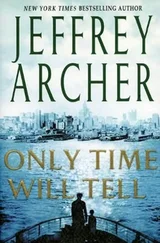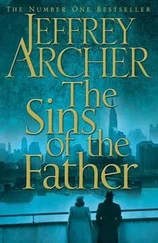He began the case for the defense by going over in detail the relevant parts, as he saw them, of Menzies’ past. He assured us all that those who wished to dissect it later would only find an unblemished record. Paul Menzies was a happily married man who lived in Sutton with his wife and three children, Polly, aged twenty-one, Michael, nineteen, and Sally, sixteen. Two of the children were now at university and the youngest had just completed her GCSE. Doctors had advised Mrs. Menzies not to attend the trial, following her recent release from hospital. I noticed two of the women on the jury smile sympathetically.
Mr. Menzies, Mr. Scott continued, had been with the same firm of insurance brokers in the City of London for the past six years, and although he had not been promoted, he was a much respected member of the staff. He was a pillar of his local community, having served with the Territorial Army and on the committee of the local camera club. He had once even stood for the Sutton council. He could hardly be described as a serious candidate for murder.
Mr. Scott then went on to the actual day of the murder and confirmed that Mr. Menzies had an appointment with Miss Moorland on the afternoon in question, but in a strictly professional capacity with the sole purpose of helping her with a personal insurance plan. There could have been no other reason to visit Miss Moorland during office hours. He did not have sexual intercourse with her and he certainly did not murder her.
The defendant had left his client a few minutes after six. He understood she had intended to change before going out to dinner with her sister in Fulham. He had arranged to see her the following Wednesday at his office for the purpose of drawing up the completed policy. The defense, Mr. Scott went on, would later produce a diary entry that would establish the truth of this statement.
The charge against the accused was, he submitted, based almost completely on circumstantial evidence. He felt confident that, when the trial reached its conclusion, the jury would be left with no choice but to release his client back into the bosom of his loving family. ‘You must end this nightmare,’ Mr. Scott concluded. ‘It has gone on far too long for an innocent man.’
At this point the judge suggested a break for lunch. During the meal I was unable to concentrate or even take in what was being said around me. The majority of those who had an opinion to give now seemed convinced that Menzies was innocent.
As soon as we returned, at ten past two, Mr. Scott called his first witness: the defendant himself.
Paul Menzies left the dock and walked slowly over to the witness box. He took a copy of the New Testament in his right hand and haltingly read the words of the oath, from a card which he held in his left.
Every eye was fixed on him while Mr. Scott began to guide his client carefully through the minefield of evidence.
Menzies became progressively more confident in his delivery as the day wore on, and when at four thirty the judge told the court, ‘That’s enough for today,’ I was convinced that he would get off, even if only by a majority verdict.
I spent a fitful night before returning to my place on the third day fearing the worst. Would Menzies be released and would they then start looking for me?
Mr. Scott opened the third morning as gently as he had begun the second, but he repeated so many questions from the previous day that it became obvious he was only steadying his client in preparation for prosecuting counsel. Before he finally sat down he asked Menzies for a third time, ‘Did you ever have sexual intercourse with Miss Moorland?’
‘No, sir. I had only met her for the first time that day,’ Menzies replied firmly.
‘And did you murder Miss Moorland?’
‘Certainly not, sir,’ said Menzies, his voice now strong and confident.
Mr. Scott resumed his place, a look of quiet satisfaction on his face.
In fairness to Menzies, very little which takes place in normal life could have prepared anyone for cross-examination by Sir Humphrey Mountcliff. I could not have asked for a better advocate.
‘I’d like to start, if I may, Mr. Menzies,’ he began, ‘with what your counsel seems to set great store by as proof of your innocence.’
Menzies’ thin lips remained in a firm straight line.
‘The pertinent entry in your diary which suggests that you made a second appointment to see Miss Moorland, the murdered woman’ — three words Sir Humphrey was to repeat again and again during his cross-examination — ‘for the Wednesday after she had been killed.’
‘Yes, sir,’ said Menzies.
‘This entry was made — correct me if I’m wrong — following your Thursday meeting at Miss Moorland’s flat.’
‘Yes, sir,’ said Menzies, obviously tutored not to add anything that might later help prosecuting counsel.
‘So when did you make that entry?’ Sir Humphrey asked.
‘On the Friday morning.’
‘After Miss Moorland had been killed?’
‘Yes, but I didn’t know.’
‘Do you carry a diary on you, Mr. Menzies?’
‘Yes, but only a small pocket diary, not my large desk one.’
‘Do you have it with you today?’
‘I do.’
‘May I be allowed to see it?’
Reluctantly Menzies took a small green diary out of his jacket pocket and handed it over to the clerk of the court, who in turn passed it on to Sir Humphrey. Sir Humphrey began to leaf through the pages.
‘I see that there is no entry for your appointment with Miss Moorland for the afternoon on which she was murdered?’
‘No, sir,’ said Menzies. ‘I put office appointments only in my desk diary, personal appointments are restricted to my pocket diary.’
‘I understand,’ said Sir Humphrey. He paused and looked up. ‘But isn’t it strange, Mr. Menzies, that you agreed to an appointment with a client to discuss further business and you then trusted it to memory, when you so easily could have put it in the diary you carry around with you all the time before transferring it?’
‘I might have written it down on a slip of paper at the time, but as I explained that’s a personal diary.’
‘Is it?’ said Sir Humphrey as he flicked back a few more pages. ‘Who is David Paterson?’ he asked.
Menzies looked as if he were trying to place him.
‘Mr. David Paterson, 112 City Road, 11:30, January 9, this year,’ Sir Humphrey read out to the court. Menzies looked anxious. ‘We could subpoena Mr. Paterson if you can’t recall the meeting,’ said Sir Humphrey helpfully.
‘He’s a client of my firm,’ said Menzies in a quiet voice.
‘A client of your firm,’ Sir Humphrey repeated slowly. ‘I wonder how many of those I could find if I went through your diary at a more leisurely pace?’ Menzies bowed his head as Sir Humphrey passed the diary back to the clerk, having made his point.
‘Now I should like to turn to some more important questions...’
‘Not until after lunch, Sir Humphrey,’ the judge intervened. ‘It’s nearly one and I think we’ll take a break now.’
‘As you wish, my Lord,’ came back the courteous reply.
I left the court in a more optimistic mood, even though I couldn’t wait to discover what could be more important than that diary. Sir Humphrey’s emphasis on little lies, although they did not prove Menzies was a murderer, did show he was hiding something. I became anxious that during the break Mr. Scott might advise Menzies to admit to his affair with Carla, and thus make the rest of his story appear more credible. To my relief, over the meal I learned that under English law Menzies could not consult his counsel while he was still in the witness box. I noticed when we returned to court that Mr. Scott’s smile had disappeared.
Читать дальше












